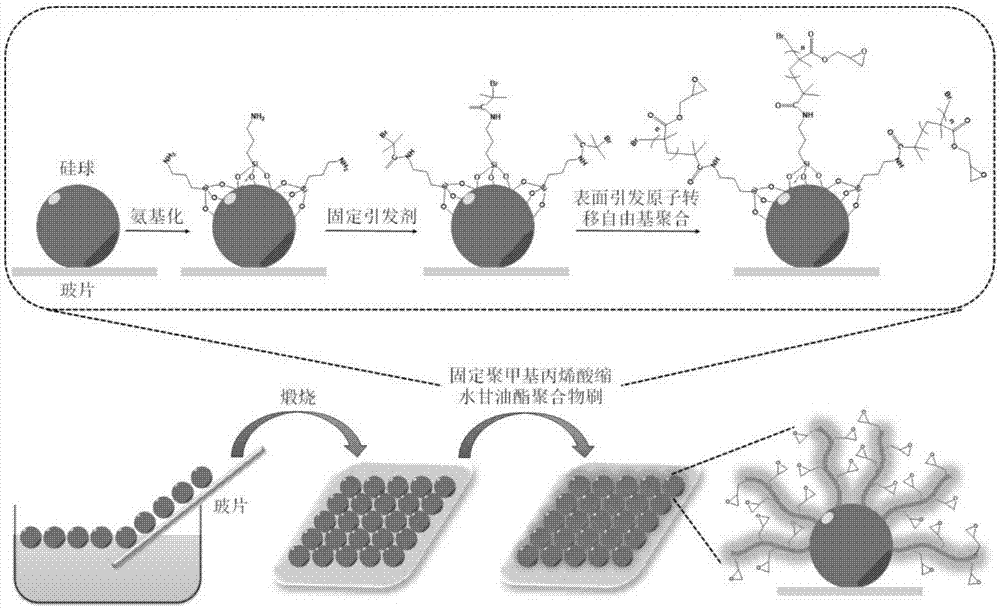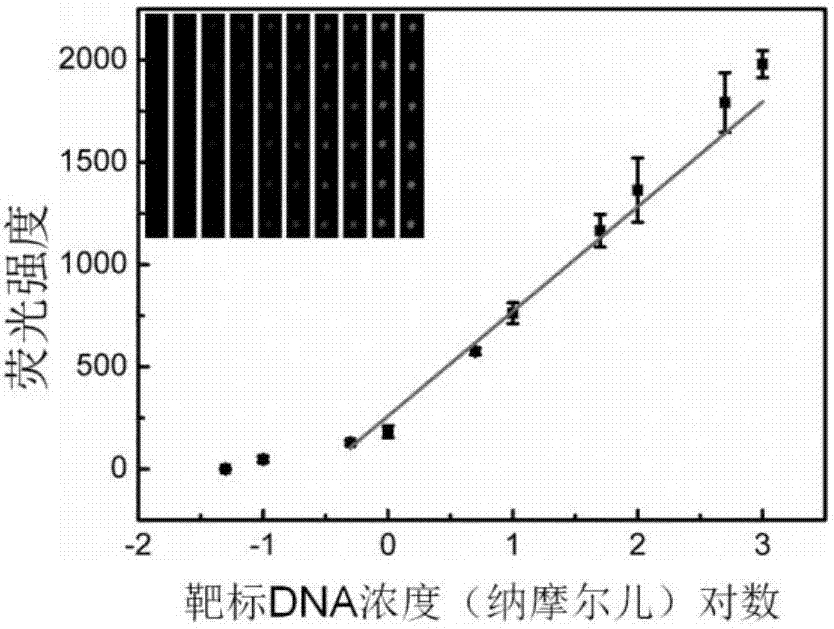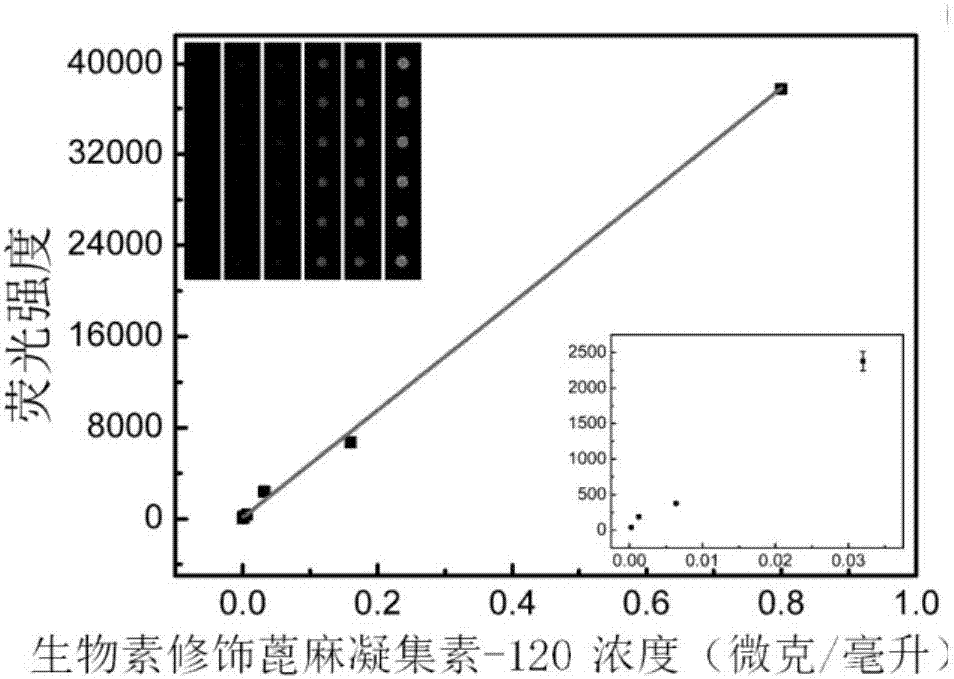Micro-array chip based on double layer nano-structure substrate and preparation method thereof
A double-layer nanostructure and microarray chip technology, which is applied in nanostructure manufacturing, nanotechnology, nanotechnology, etc., to achieve the effect of less sample consumption, simple method and high sensitivity
- Summary
- Abstract
- Description
- Claims
- Application Information
AI Technical Summary
Problems solved by technology
Method used
Image
Examples
example 1
[0056] Example 1 - DNA Microarray Chip
[0057] Step 1: Preparation of silicon sphere substrate by silicon sphere self-assembly method
[0058] 1) Stir 2.2mL of ammonia water and 26.5mL of ethanol at room temperature for 10min, add 0.75mL of tetraethyl orthosilicate and react for 3h at room temperature, then centrifuge and purify the reaction product at a speed of 9000rpm / min and disperse it into n-butyl In the alcohol solution, the silicon sphere solution is obtained.
[0059] 2) Add the obtained silicon sphere solution into water drop by drop, and the silicon spheres will spontaneously form a self-assembled monolayer on the surface of the water. When the clean glass slide was placed on the water surface, the formed silicon sphere monolayer spontaneously transferred to the glass slide surface, and after calcination at 500°C for 1 hour, a stable silicon sphere substrate was obtained. The silicon ball substrate has a three-dimensional spherical nanostructure.
[0060] Step 2...
example 2
[0078] Example 2 - sugar microarray chip
[0079] Step 1: Preparation of silicon sphere substrate by silicon sphere self-assembly method
[0080] 1) Stir 2.2mL of ammonia water and 26.5mL of ethanol at room temperature for 10min, add 0.75mL of tetraethyl orthosilicate and react for 3h at room temperature, then centrifuge and purify the reaction product at a speed of 9000rpm / min and disperse it into n-butyl In the alcohol solution, the silicon sphere solution is obtained.
[0081] 2) Add the obtained silicon sphere solution into water drop by drop, and the silicon spheres will spontaneously form a self-assembled monolayer on the surface of the water. When the clean glass slide was placed on the water surface, the formed silicon sphere monolayer spontaneously transferred to the glass slide surface, and after calcination at 500°C for 1 hour, a stable silicon sphere substrate was obtained. The silicon ball substrate has a three-dimensional spherical nanostructure.
[0082] Step 2...
example 3
[0100] Example 3 - Glycoprotein Microarray Chip
[0101] Step 1: Preparation of silicon sphere substrate by silicon sphere self-assembly method
[0102] 1) Stir 2.2mL of ammonia water and 26.5mL of ethanol at room temperature for 10min, add 0.75mL of tetraethyl orthosilicate and react for 3h at room temperature, then centrifuge and purify the reaction product at a speed of 9000rpm / min and disperse it into n-butyl In the alcohol solution, the silicon sphere solution is obtained.
[0103] 2) Add the obtained silicon sphere solution into water drop by drop, and the silicon spheres will spontaneously form a self-assembled monolayer on the surface of the water. When the clean glass slide was placed on the water surface, the formed silicon sphere monolayer spontaneously transferred to the glass slide surface, and after calcination at 500°C for 1 hour, a stable silicon sphere substrate was obtained. The silicon ball substrate has a three-dimensional spherical nanostructure.
[010...
PUM
| Property | Measurement | Unit |
|---|---|---|
| Diameter | aaaaa | aaaaa |
Abstract
Description
Claims
Application Information
 Login to View More
Login to View More - R&D
- Intellectual Property
- Life Sciences
- Materials
- Tech Scout
- Unparalleled Data Quality
- Higher Quality Content
- 60% Fewer Hallucinations
Browse by: Latest US Patents, China's latest patents, Technical Efficacy Thesaurus, Application Domain, Technology Topic, Popular Technical Reports.
© 2025 PatSnap. All rights reserved.Legal|Privacy policy|Modern Slavery Act Transparency Statement|Sitemap|About US| Contact US: help@patsnap.com



